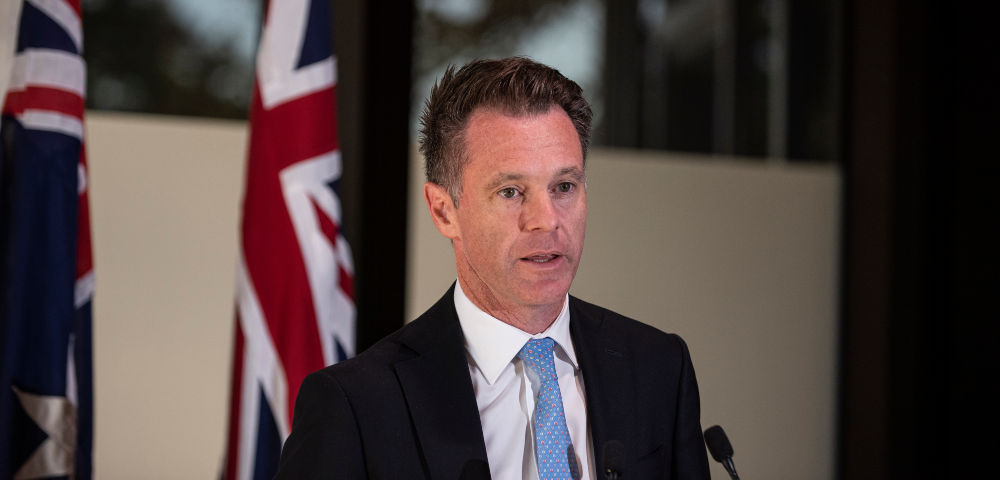
Civil Rights Groups Label Minns’ Anti-Protest Laws “Draconian”

On Tuesday, the NSW Government tabled its to address rising rates of antisemitism, but many have raised concerns that the new laws would suppress protest and give police unnecessary power.
This is the second time in three months that the NSW government has introduced anti-protest laws.
The Crimes Amendment (Places of Worship) Bill 2025 would make it an offence to block access to a place of worship without reasonable excuse,Β with a potential two years imprisonment and/or a $22,000 fine for blocking, impeding or hindering access to places of worship.
The proposal could be used to charge members of the faith protesting their own organisation, as was the case when anti-Zionist Jewish protesters gathered outside of the Great Synagogue in .
Institutional child sexual abuse survivors would have been unable to protest outside churches, and Town Hall, the site of multiple significant protests over the years, would no longer be a viable location to gather given its proximity to St Andrews Cathedral.
In 2017, more than 30,000 people gathered at Town Hall in support of same sex marriage.
βNew South Wales is becoming a police state, where the NSW Government is dangerously limiting freedom of speech and threatening any political dissent with serious jail time,” said President of the NSW Council for Civil Liberties, Timothy Roberts.
“Just for impeding a person entering a place of worship, regardless of the reason, any person will face up to two years imprisonment.
βReligious institutions exercise significant and overt political power in Australian politics and this makes them a legitimate site of protest in a democratic society.”
Damien Nguyen, a Mardi Gras board director elected by Pride in Protest, said that these issues were becoming increasingly concerning for the queer community.
“These new laws are an attempt at suppressing activism, and this includes activism that fights for LGBTQIA+ rights.
“We must take a strong position against implementation of these laws.”
Professor Luke Macnamara, Faculty of Law and Justice at the University of New South Wales, said that the right to protest in Australia was being “steadily eroded”.
βThis Bill seeks to place religious institutions βoff limitsβ as targets of protest. That the Government knows this blanket approach is an overreach is revealed by the fact that, under the bill, protests that form part of industrial action will be exempt from these new draconian criminal laws and police powers.
“So, a protest outside St Maryβs Cathedral in support of better pay and condition for teachers in catholic schools is OK, but protestors in the same location calling for better support for victims of child sexual abuse might be moved on or arrested?”
Criticism from human rights groups
The laws are also facing criticism from human and civil rights groups, whoΒ say the laws risk the over-criminalisation of vulnerable minorities, including Aboriginal and Torres Strait Islander peoples, people with disability and young people.Β
The findings from a review into section 93Z of the Crimes Act handed to the government last year ruled against the laws, and warnedΒ Β that provisions like those suggested by the Minns Government are imprecise and subjective.
The review also emphasised that the reforms go against the advice of the UN Committee on the Elimination of Racial Discrimination which specifies that restrictions on freedom of speech should not be βbroad or vagueβ.
The Minns government have faced extensive for their laws targeting protestors. In November, climate crisis demonstrators were targeted when the penalties for obstructing a railway were doubled, with a maximum fine of $22,000 or up to two years imprisonment, or both.
βTrain drivers, passengers travelling to work, and companies going about their business should not have to contend with protesters on the tracks β itβs that simple,β Minns said at the time.
TheΒ NSW Greens have Β that have been passed since 2014.





![ACON’s a[TEST] Sexual Health Clinic Re-Opening In Time For Mardi Gras](https://cdn.starobserver.com.au/spio/ret_img,q_orig,to_webp,s_webp/www.starobserver.com.au/wp-content/uploads/2025/02/ACON-Sexual-Health-Clinic-Re-Opening-Just-In-Time-For-Mardi-Gras.jpg)




Leave a Reply